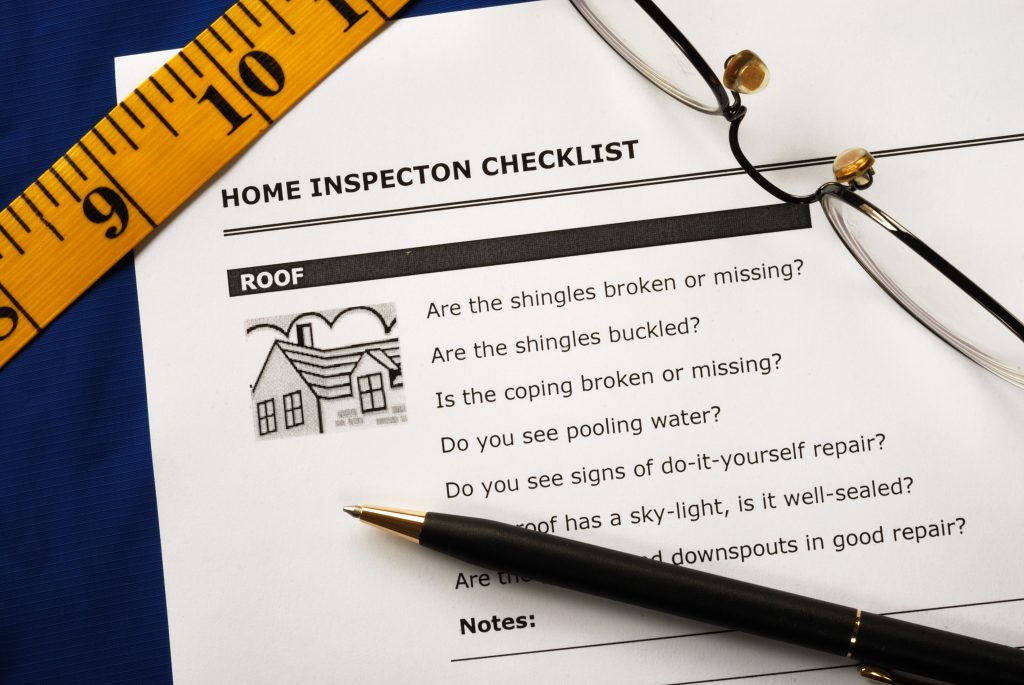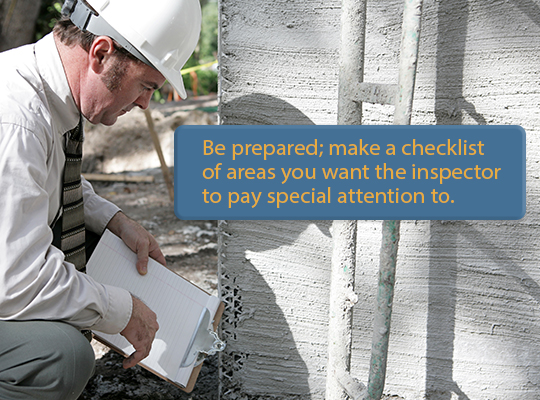Home Inspection Checklist
A Home Inspection will let you know the condition of the home before buying the house and finalizing the deal. The home inspection gives you a chance to spend time in the home again and learn more about it. You may not have an opportunity to enter the home again until the final walk-through. A home inspection can help reassure you, that you are making the right choice. Your home inspection will provide you with a checklist and a detailed report which gives you tips on any home maintenance that has been done and/or what will need to be done in the future.
Learn more about what should be on your home inspection checklist

Hire a licensed, professional home inspector to conduct a thorough inspection. Your real estate agent will have suggestions of home inspectors they have used before. Ask for recommendations, check for online reviews and study the inspector’s website. Be sure you understand what is and isn’t included in the inspection price. Make sure the inspector will be available for an inspection during your contract timeline.
Inspection Day
On inspection day you should plan on being available for the entire morning or afternoon. The home inspection will take several hours. You don’t want to rush this process. Your real estate agent and the seller’s agent might also be there to provide any answers the inspector might need. Walk around with the inspector. The inspector will point out problems and help explain the home’s maintenance systems. This information will be included in the written report along with pictures.
Be prepared; make a checklist of areas you want the inspector to pay special attention to. Your home inspector will address these issues in the report. This is a checklist of what the home inspector will be checking. If these areas aren’t included in the final report, ask why not.
- Foundation – look for obvious cracks or shifts in foundation
- Lot – does it drain away from house
- Roof – overall condition
- Exterior – gutters & downspouts, loose boards or dangling wires, asbestos in exterior material
- Attic – interior of roof structure, any signs of leaks
- Interior evidence of leaks – check ceilings and around windows
- Basement – dampness, adequate insulation
- Electrical – working switches, outlets grounded, panel up to date and expandable
- Plumbing – unusual noises or malfunctions
- Appliances – age and condition
- Heating/Cooling System – how old is furnace, working condition
- Odor – musty odors could signal a wet basement
Download the Home Inspection Checklist

Seller Disclosure/Remodel
Before your inspection, the seller should give you a disclosure statement. This will help you see if there is anything you want your inspector to look at. Look to see if any unpermitted work has been done. If you ever remodel, it will be up to you to bring the house up to code. Unpermitted work needs to be carefully inspected, especially if it was electrical or plumbing work.
The inspector can only cover things that they can see. An inspector can’t predict the future. If a problem is truly hidden, it may be missed in the inspection. A professional home inspector will give you the most thorough checklist and report that they are capable of making at the time of the inspection.
Schedule a Home Inspection Now

